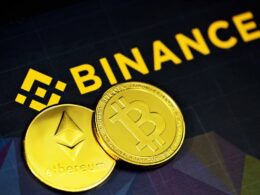Support for Gaming Catalyst Program Proposal
The Arbitrum community has demonstrated strong support for the Gaming Catalyst Program (GCP) proposal, which aims to allocate 200 million ARB tokens towards the development of web3 games on the Ethereum Layer 2. Currently, 35 million ARB tokens have been mobilized in favor of the proposal, while only 101,400 ARB tokens stand in opposition. To reach quorum, a minimum of 105.57 million ARB tokens must be cast as votes for the proposal. The voting process commenced on May 24 and is scheduled to conclude on June 7.
“By offering support, incentives, and game industry-specific tools, Arbitrum can position itself as an attractive platform for game development, leading to a surge in high-quality gaming experiences on the network.”
The proposal, which had previously garnered nearly 97% support in a preliminary temperature check vote in March, seeks to increase awareness and adoption of Arbitrum/Orbit/Stylus among builders and players in the gaming community.
GCP Proposal Details
- 160 million ARB tokens allocated to “onboarding and growth,” aimed at attracting and supporting publishers, studios, and independent developers working on web3 gaming titles.
- Establishment of the “Build Grants” program, providing 25 million ARB tokens as grants for early-stage projects, with a cap of 500,000 ARB tokens per project.
- Remaining 40 million ARB tokens earmarked for infrastructure and tooling development.
To oversee the incentives program, a GCP council will be formed, composed of professionals with backgrounds in gaming, venture capital, grant allocation, web3 technology, and DAO relations. Council members will be elected by the DAO and will not represent GCP applicants or competing networks.
The GameFi sector currently holds a combined market capitalization of $22.7 billion, showcasing a significant 144% increase from $9.31 billion at the end of October, as reported by CoinGecko. Despite this growth, Ethereum scaling solutions and Layer 2 solutions have yet to surpass other Layer 1 blockchains in terms of real processing speed. This discrepancy may be due to the comparatively lower number of on-chain transactions on Ethereum scaling solutions, resulting in slower realized TPS for these blockchains.
















